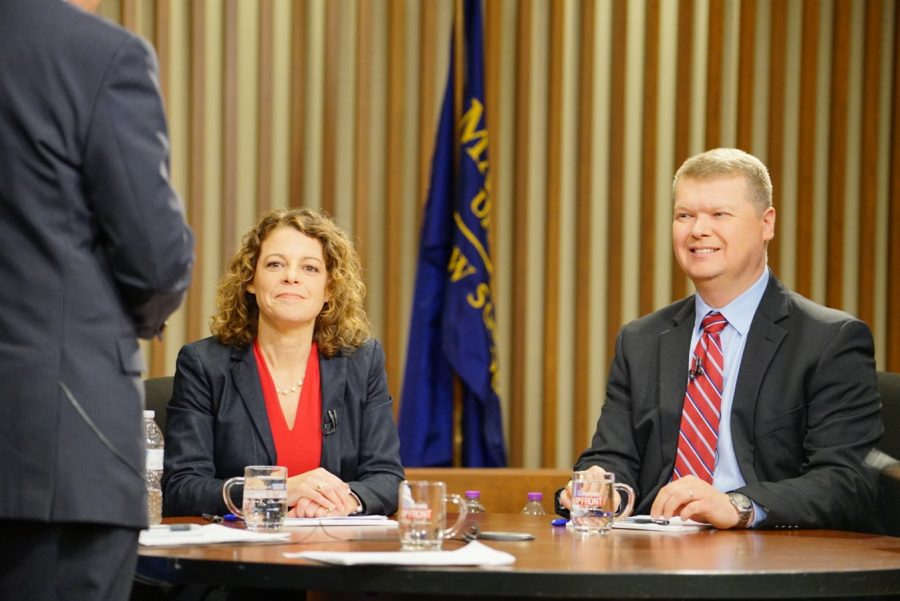 Milwaukee County officials withdrew an amendment to the 2013 city budget last Thursday that would have reduced bus fares and eliminated paper transfers. The amendment was originally proposed last Tuesday to lower prices for riders and reduce fraudulent activity relating to these transfers.
Milwaukee County officials withdrew an amendment to the 2013 city budget last Thursday that would have reduced bus fares and eliminated paper transfers. The amendment was originally proposed last Tuesday to lower prices for riders and reduce fraudulent activity relating to these transfers.
According to an overview of County Executive’s 2013 Recommended Budget released earlier this month, funding for the Milwaukee County Transit System has become increasingly problematic over the last decade. To maintain current transit services, tax support would “need to be increased by $29 million or a 153 percent by 2017,” according to the budget report.
The proposed amendment to the 2013 budget reportedly was an effort to create a $100,000 decrease in needed tax support by lowering the bus fare to $1.75, or $0.50 lower than current fares. Supporters of this amendment originally stated that lowered bus fares would increase the number of riders and therefore increase revenue.
The Bay View Compass reported last Friday that the proposed amendment was withdrawn by County Supervisor Jason Haas due to the possibility of it causing “unintended consequences.” Haas did not return calls seeking comment Wednesday.
Part of the withdrawn amendment was aimed at eliminating the paper transfers. Under the current system, passengers receive paper transfers whenever they must change buses to reach their destination. Paper transfers are used so passengers avoid having to pay multiple fares for what is essentially a single trip. However, fraud has arisen in the use of these papers, with individuals stealing paper transfers or counterfeiting their own.
The proposed alternative to paper transfers was to offer a day pass costing $4. Such a pass would give its holder unlimited bus rides for the day. The $4 day pass, though it would eliminate the need for paper transfers, would potentially cost more to riders who do not need more than one bus change in a day.
The amendment was further critiqued on the grounds that, if the tickets were purchased in advance, bus passengers would already be able to get tickets for $1.75.
Lowering bus prices has become a large focus in the 2013 budget. According to the budget overview, “In 2010, 14 percent of Milwaukee County households and 17 percent of City of Milwaukee households did not have a personal vehicle available and were dependent on public transit for travel purposes.” Furthermore, without a lowering of bus fares, Milwaukee County will continue to have “one of the highest transit cash fares among comparable bus systems nationwide,” according to the report.
Despite the criticism, Marquette students see potential benefits if such a plan was enacted.
“I can definitely see the benefit to a pass like that,” said Emmali Hanson, a freshman in the College of Engineering. “If I ever forget my bus pass in my room, it’d be nice knowing that I could just pay $4 and be able to get wherever I need to go all day.”
The plan may also have had the added benefit of solving what some consider to be an overly complex system.
“This is not nearly as befuddling as some other Milwaukee County moves to save mass transit,” said Richard Robinson, an associate professor of marketing and an expert in transportation management. “From the student benefit standpoint, any plan to cut fares and to boost ridership is desirable. Abolishing paper transfers is overdue and a logical progression toward greater efficiency.”
Though the amendment has been withdrawn, the 2013 budget may still include plans to change the bus system by including updated fare boxes that would enable the use of a smart card that passengers could simply wave over a scanner. This card would eliminate the need for paper transfers by storing any transfer information electronically.
Source:
http://county.milwaukee.gov/ImageLibrary/Groups/cntySupervisors/cntybrdstandingcommittees/FA/cntybrdbudgethearings/2013CBSfaffOverview100512.pdf






